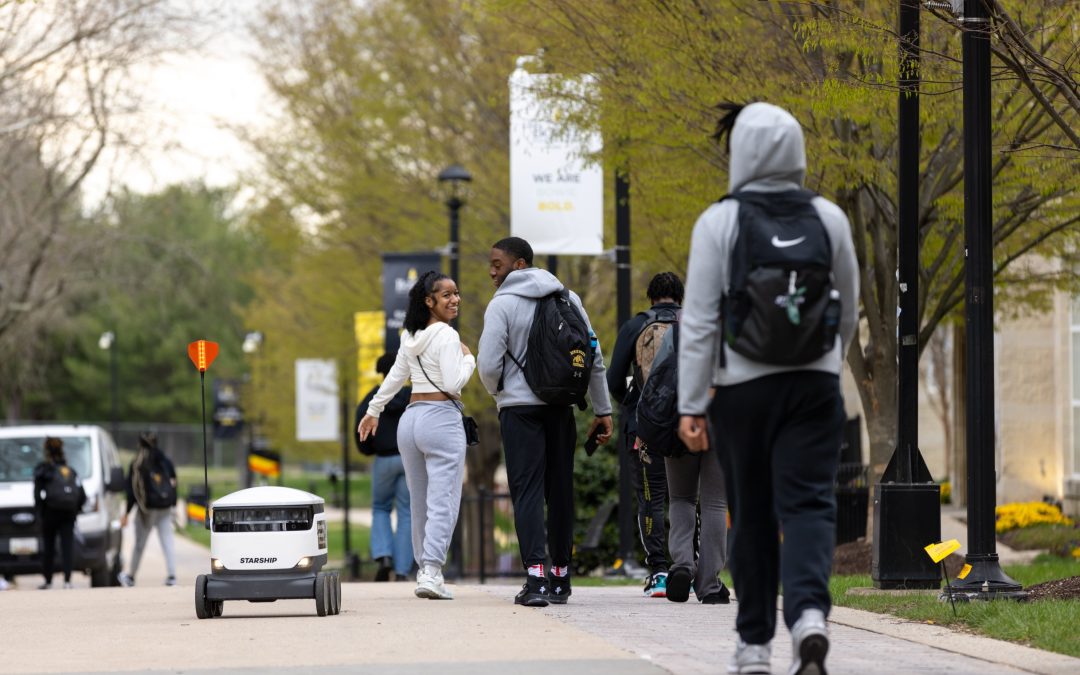If you’ve ever seen a Starship delivery robot on a college campus, you might think, well, that’s adorable. You might even want to pat it. Lots of students do. But a new survey from Starship reveals that consumer sentiment toward their meal-delivery robots go beyond the cute factor. The robots can also be a boon to wellness.
In a survey of 1,632 students from 35 college campuses, 63 percent said the robots help them avoid skipping meals and 53 percent say they enable them to study more because the robots deliver when and where they need them. Twenty-five percent said they felt safer on campus because of the contactless delivery offered by the robots and nearly one in five said the robots have improved their mental health.
Those are impressive public health metrics. They speak to much more than food delivery. They speak to emotional and physical peace.
“We’ve noticed a positive difference since Starship robots have been on campus,” said Houston Freeman, director of customer experience at Georgia Tech Dining, in a statement. “Our students can eat more on their schedule and find ways to fit in a meal they otherwise would not have time to do.”
This marks a noticeable shift from not long ago, when consumers were likely to run from a delivery robot. In 2018, a Brookings survey found that 61 percent of U.S. respondents were uncomfortable with robots. Yet in Starship’s survey, 91 percent said they would recommend the robots to a friend.
Starship Technologies now operates robots on more than 50 campuses. Its robots most recently landed at the University of Minnesota.


